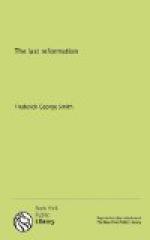CHAPTER VII
THE REFORMATION
The age of popery’s greatest glory was the world’s midnight. I have not attempted to give an adequate description of that long reign of superstition and error preceding the reformation of the sixteenth century. Such is the particular province of ecclesiastical historians. I have simply confined the discussion to certain features essential to our present purpose.
One point of importance I have endeavored to impress, namely, that the papal hierarchy, with all its attendant evils, corruption, superstition, and spiritual despotism, was the logical successor of the Ante-Nicene church; that the ripened fruits of papalism were the direct results of the seeds of error planted in the second and third centuries. In view of this fact, one is led to inquire why true Christianity was not permanently buried in oblivion beyond the possibility of resurrection, how any reformation could be possible.
If Christianity were nothing more than a human religion, its reformation at such a period of decline and corruption would appear impossible. But Christianity was of divine origin. No matter how deeply it was buried under the rubbish of human tradition and superstition, no matter how grossly it was perverted and misunderstood by men, it still retained within itself the vital spark of divine life, the living principle of reformation.
[Sidenote: First cause of reformation]
The secret of this reformatory power was Jesus Christ himself, the great ever-living head of the church. Notwithstanding the decline of faith and morals among those professing Christ, the wonderful character of Jesus still stood out with remarkable clearness and power in the records of the New Testament and could not but exert a tremendous influence in spite of prevailing standards; could not but shed rays of light and warmth in the midst of the surrounding darkness. Although men’s ideas of the church became perverted, they could not entirely lose sight of the great Founder




